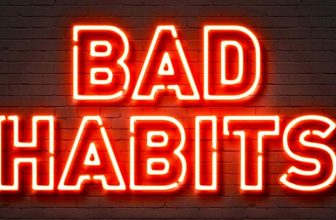
What is the technical importance of analytical listening and how does it intervene in psychoanalytic construction? How do you define countertransference and how is it handled in psychotherapeutic practice? In this article, I will talk a bit more about Psychoanalytic theory, focusing on two core elements so let’s dig into it! Follow on for Psychoanalysis: Analytical Listening and Countertransference.
Analytical Listening
Analytical listening is essential in psychoanalysis and is based on its fundamental principle, also known as the free association method namely: “say the first thing that comes to mind.” The idea is that the person begins to talk, to express himself, and the analyst takes specific words and reactions to find the root of the problem, which, according to this theory, is repressed unconsciously.
In short, this is a process by which one tries to make the unconscious conscious, sounds easy, right? The second concept is…
Countertransference
On the other hand, countertransference can be defined as the following: “An emotional response of the analyst to the stimuli coming from the patient, as the result of the influence of the patient on the unconscious feelings of the doctor (analyst).” (Etchegoyen, H. 2004).
This projection is unconsciously formed in the analyst from his/her past experiences. Freud considered countertransference an obstacle, but later this concept was taken up by other professionals such as Paula Heinemann and Heinrich Racker who changed this narrative.
They commented that if the analyst is aware of and connected with his feelings (we could also say ghosts and limitations) rather than an obstacle, this could be seen as a very useful tool.
This resulted in two types of countertransference:
- Positive: This is when the professional uses his experience and subjectivity to help the patient.
- Negative: When these ghosts and limitations of the professional hinder their exercise, and end up hurting the patient.
Now, having discussed the above, I would like to raise the following.
My Analysis
Both analytical listening and countertransference are something that the psychoanalysis professional will acquire and develop through experience, but also through a therapeutic process. Something important to discuss is the importance of the analyst’s experience, not only as a professional but also as a patient. By this, I mean that we all have our ghosts and limitations, and that is why we must face them and deal with them.
We must know our strengths and weaknesses and be humble enough so that, if we find ourselves treating a patient on whom we realize we’re projecting negative countertransference for whatever reason, we can refer him to another professional and then the professional can discuss this situation in therapy.
This is something that is mentioned in “Lay Analysis.” I reiterate, of all the doubts and contradictions that were presented, are presented and will be presented in the psychoanalytic theory, something that’s not discussed is the importance of the therapeutic process in the analyst.
Furthermore, when we analyse ourselves (we attend therapy), we observe the functioning of analytical listening and countertransference. Thus, we understand it from another perspective which seems to be forgotten by professionals, namely, the patient’s perspective!
To summarize I would like to share the following:
“To be able to think what the patient cannot think, to be able to fill the gaps in the patient’s impulse, to be able to complete everything that the patient cannot. If the therapist is shameful he will not be able to face certain issues. When he is fearful he will not be able to confront a patient with paranoid features. If he is narcissistic he will not be able to tolerate that his statements are questioned by the patient.” (Bleichmar, H. 2014).
This text perfectly reflects what I’m expressing that before facing the world, we must look at ourselves. Who do we think we are to say something when we do not even do it ourselves? What are we afraid of? Afraid of thinking? Of being wrong? Of not knowing how to debate? Or is it just a matter of ego? What do you think?
This article serves to introduce some ideas from psychoanalysis. If you want to learn more, I encourage you to look at all the different authors and schools of psychoanalytic thought to get more specific about each definition and their variations.









